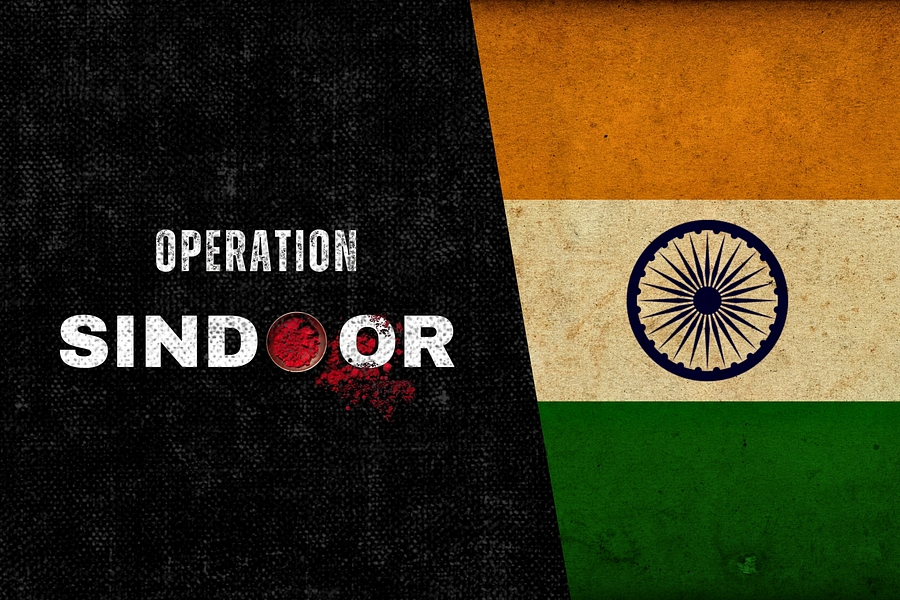Sociology Optional Booklist & Preparation Guide for UPSC
Sociology Optional Booklist & Preparation Guide for UPSC provides aspirants with a complete roadmap to master both Paper I (Fundamentals of Sociology) and Paper II (Indian Society). Covering essential thinkers like Marx, Weber, and Durkheim, as well as topics such as caste, class, kinship, social change, and current issues, this guide lists standard sources including NCERTs, IGNOU materials, Haralambos & Holborn, Anthony Giddens, and Ram Ahuja. Alongside the booklist, it offers practical preparation tips, answer-writing strategies, and revision techniques. A well-structured approach not only strengthens conceptual clarity but also enhances performance in General Studies, Essay, and Sociology Optional papers.
Frequently Asked Questions (FAQs)
Why should I choose Sociology as my optional subject for UPSC?
Sociology is a popular optional because it is easy to understand, overlaps with GS papers and Essay, and helps in understanding society, social issues, and human behavior, which are integral to the UPSC exam.
What is the syllabus for Sociology optional in UPSC?
The Sociology optional has two papers:
- Paper I: Fundamentals of Sociology – theories, thinkers (Marx, Weber, Durkheim), and core concepts like socialization, culture, institutions.
- Paper II: Indian Society – caste, class, gender, poverty, social change, and contemporary issues.
How should I start preparing for Sociology optional?
Start by understanding the syllabus thoroughly, make a structured study plan, and use standard books. Begin with Paper I basics, then move to Paper II with current examples from Indian society.
What are the best books for Sociology optional?
- Sociology: Themes and Perspectives – Haralambos & Holborn
- Sociology by Anthony Giddens
- Sociological Theory – George Ritzer
- Social Problems in India – Ram Ahuja
Are online resources and coaching necessary for Sociology Optional?
Not mandatory, but they can be very helpful. Online courses (like Primus Civil Service Academy), video lectures, and structured coaching provide clarity on concepts, regular tests, and guidance on effective answer writing.
How important is answer writing in Sociology?
Answer writing is crucial. Use simple language, structured answers (Intro–Body–Conclusion), and add real-life/current examples. This improves presentation and fetches higher marks.
How can I improve my score in Sociology optional?
- Practice regular answer writing.
- Revise frequently using short notes/flashcards.
- Take mock tests to improve speed and accuracy.
- Use case studies and current affairs examples in Paper II.
How do I revise Sociology effectively?
Make concise notes, revise them regularly, and summarize topics in your own words. Flashcards, flowcharts, and mind maps also make revision quick and effective.
What role do mock tests play in Sociology preparation?
Mock tests help you understand the exam pattern, manage time, and practice writing answers under pressure. Reviewing mistakes in mock tests is essential for improvement.
Can preparing Sociology Optional help in General Studies papers?
Yes. Sociology overlaps significantly with the General Studies syllabus:
- GS Paper I: Society, Social Issues, Social Structure, and Social Change
- GS Paper II: Welfare Schemes, Social Justice, and Governance-related topics
- GS Paper III: Development, Globalization, and Human Resource-related issues
- Essay Paper: Provides analytical perspectives and examples on social issues
Overall, a good grasp of Sociology can indirectly help you score around 350–400 marks across GS papers and essays.
Is Sociology Optional easier than other subjects?
It depends on your interest and background. Many students find it logical and scoring due to its clarity and overlap with other papers. Regular practice and conceptual clarity make it easier.
How much time should I devote to Sociology Optional?
Ideally, 2–3 hours daily for new learners, increasing to 4–5 hours closer to the exam. Time can vary depending on your background in sociology.
How important is current affairs for Sociology Optional?
Moderately important. Linking sociological theories to contemporary social issues can enhance answers and help in essays. Examples from newspapers or government reports strengthen answers.
Should I rely only on books, or include notes?
Both. Books provide depth; notes help in quick revision. Summarizing concepts in your own words improves understanding and retention.
How do I tackle answer writing in Sociology Optional?
- Structure answers: Introduction → Body → Conclusion.
- Use diagrams, flowcharts, and examples where applicable.
- Stick to word limits and be precise.
Are diagrams and flowcharts necessary in answers?
They aren’t mandatory but can make answers visually appealing, clarify concepts, and earn extra marks. Use them selectively for sociological theories, models, or social structures.
How do I prepare for Paper II (Indian Society)?
Focus on caste, class, tribe, gender, modernization, social change, and social problems. Relate theories from Paper I to Indian society to write analytical answers.
Can Sociology Optional help in essay writing?
Yes. Sociological concepts provide analytical depth and examples, which are useful for topics on society, development, inequality, and social issues.
How many mock tests should I take?
Start with 1–2 monthly tests early on, then increase to weekly mocks 3–4 months before the exam. Analyze mistakes carefully and improve answer writing.
Is prior academic background in Sociology necessary?
Not required. Even students from non-sociology backgrounds can score well if they follow a structured study plan, understand concepts, and practice answer writing.
How do I choose between Sociology and other optional subjects?
Consider your interest, academic background, scoring trends, and overlap with GS papers. Sociology is considered scoring for students who like conceptual clarity and analytical writing.
How should I approach studying sociological thinkers?
Focus on key contributions, comparisons between thinkers, and applicability of their theories to Indian society and contemporary issues.
How much weightage do Paper I and Paper II carry?
Both papers carry 250 marks each, making a total of 500 marks for the optional subject.
Are previous years’ question papers important?
Yes. Analyzing past papers helps identify trends, frequently asked topics, and the style of questions. It also aids in answer writing practice.
How do I integrate current affairs in Sociology Optional?
Use examples from newspapers, government reports, or social surveys to illustrate concepts and make answers more relevant.
Is memorization important for Sociology Optional?
Moderate memorization is helpful for definitions, thinkers’ theories, and key social data. Conceptual understanding is more important.
How do I link Paper I theories with Paper II (Indian Society)?
Apply sociological theories from Paper I to analyze Indian social structures, social problems, and social change in Paper II answers.
Should I focus more on theory or empirical data?
Both are important. Theories provide conceptual depth, while empirical data, examples, and case studies enhance answer quality.
How do I improve answer writing speed?
Practice writing daily, attempt timed mock tests, and structure answers clearly with introduction, body, conclusion, and examples.
Can I self-study Sociology Optional without coaching?
Yes. With disciplined planning, the right books, online resources, and regular answer writing practice, self-study can be sufficient.
How important is analytical writing in Sociology Optional?
Very important. Analytical answers with application of theory to social issues score higher than descriptive answers.
How do I handle overlapping topics with GS papers?
Use Sociology for both Optional and GS where relevant. For example, concepts like social justice, social change, and modernization are useful in both.
How early should I start Sociology Optional preparation?
Ideally, start 12–15 months before the exam to cover the syllabus thoroughly, revise regularly, and practice answer writing.
How do I manage Sociology Optional along with GS preparation?
Integrate your study plan: use Sociology readings to support GS Paper I and II, take mock tests separately for Optional, and revise concurrently.
What are common mistakes students make in Sociology Optional?
- Ignoring answer writing practice
- Over-relying on memorization
- Not linking theory to Indian society or current affairs
- Poor time management during preparation
Sources for Paper 1 and Paper 2
Paper – I (Fundamentals of Sociology)
| Chapter | Content / Topics | Booklist |
|---|---|---|
| 1. Sociology - The Discipline |
Modernity and social changes in Europe and emergence of sociology. Scope of the subject and comparison with other social sciences. Sociology and common sense. |
Introducing Sociology (NCERT Class XI) IGNOU (ESO-11 The Study of Society) Sociology by Haralambos & Holborn (blue book) Sociological Theory – George Ritzer |
| 2. Sociology as Science |
Science, scientific method and critique. Major theoretical strands of research methodology. Positivism and its critique. Fact value and objectivity. Non-positivist methodologies. |
Introducing Sociology (NCERT Class XI) IGNOU (ESO-11 The Study of Society) IGNOU (MSO-002 Research Methodologies and Methods) Sociology by Haralambos & Holborn (blue book) Sociological Theory – George Ritzer |
| 3. Research Methods and Analysis |
Qualitative and quantitative methods. Techniques of data collection. Variables, sampling, hypothesis, reliability and validity. |
Introducing Sociology (NCERT Class XI) IGNOU (MSO-002 Research Methodologies and Methods) Sociology by Anthony Giddens |
| 4. Sociological Thinkers |
Karl Marx – Historical materialism, mode of production, alienation, class struggle. Emile Durkheim – Division of labour, social fact, suicide, religion and society. Max Weber – Social action, ideal types, authority, bureaucracy, protestant ethic and the spirit of capitalism. Talcott Parsons – Social system, pattern variables. Robert K. Merton – Latent and manifest functions, conformity and deviance, reference groups. Mead – Self and identity. |
Understanding Society (NCERT Class XI) IGNOU (ESO-13 Sociological Thought & MSO-001 Sociological Theories and Concepts) Sociology by Haralambos & Holborn (blue book) Sociological Theory – George Ritzer Sociology by Anthony Giddens |
| 5. Stratification and Mobility |
Concepts – equality, inequality, hierarchy, exclusion, poverty and deprivation. Theories of social stratification – Structural functionalist, Marxist, Weberian. Dimensions – class, status groups, gender, ethnicity and race. Social mobility – open and closed systems, types, sources and causes. |
Understanding Society (NCERT Class XI) Sociology by Haralambos & Holborn (blue book) IGNOU (ESO-11, ESO-14) Sociology by Anthony Giddens |
| 6. Works and Economic Life |
Social organization of work – slave, feudal, industrial/capitalist societies. Formal and informal organization of work. Labour and society. |
Introducing Sociology (NCERT Class XI) Sociology by Haralambos & Holborn (blue book) Sociology by Anthony Giddens IGNOU (ESO-11, MSOE-004, ESO-16) |
| 7. Politics and Society |
Sociological theories of power. Power elite, bureaucracy, pressure groups, political parties. Nation, state, civil society – citizenship, democracy, ideology. Social movements – protest, agitation, collective action, revolution. |
Sociology by Haralambos & Holborn (blue book) IGNOU (MSO-001, ESO-12) |
| 8. Religion and Society |
Sociological theories of religion. Types of practices: animism, monism, pluralism, sects, cults. Religion in modern society: religion & science, secularization, revivalism, fundamentalism. |
Sociology by Haralambos & Holborn (blue book) IGNOU (ESO-15, MSOE-003) Sociology by Anthony Giddens |
| 9. Systems of Kinship |
Family, household, marriage. Types and forms of family. Lineage and descent. Patriarchy and sexual division of labour. Contemporary trends. |
Introducing Sociology (NCERT Class XI) Sociology by Haralambos & Holborn (blue book) IGNOU (ESO-11, ESO-12) Sociology by Anthony Giddens |
| 10. Social Change in Modern Society |
Sociological theories of social change. Development and dependency. Agents of social change. Education and social change. Science, technology and social change. |
Understanding Society (NCERT Class XI) IGNOU (ESO-11) Sociology by Anthony Giddens |
Paper – II (Indian Society: Structure and Change)
| Chapter / Section | Content / Topics | Booklist |
|---|---|---|
| A. Introducing Indian Society (i) |
Perspectives on the study of Indian society: Indology (G S Ghurye). Structural functionalism (M N Srinivas). Marxist sociology (A R Desai). |
Understanding Society (NCERT Class XI) IGNOU (MSO-004 Sociology in India) Indian Sociological Thought by B K Nagla Economic and Political Weekly, Shodhganga |
| A. Introducing Indian Society (ii) |
Impact of colonial rule on Indian society: Social background of Indian nationalism. Modernization of Indian tradition. Protests and movements during the colonial period. Social reforms. |
Indian Society (NCERT Class XII) IGNOU (ESO-12 Society in India) Economic and Political Weekly, Shodhganga |
| B. Social Structure (i) |
Rural and Agrarian Social Structure: The idea of Indian village and village studies. Agrarian social structure – evolution of land tenure system, land reforms. |
Social Change and Development in India (NCERT Class XII) IGNOU (MSO-004 Sociology in India) IGNOU (ESO-16 Social Problems in India) Economic and Political Weekly, Shodhganga |
| B. Social Structure (ii) |
Caste System: Perspectives – GS Ghurye, M N Srinivas, Louis Dumont, Andre Beteille. Features of caste system. Untouchability – forms and perspectives. |
Indian Society (NCERT Class XII) IGNOU (ESO-12 Society in India) Economic and Political Weekly, Shodhganga |
| B. Social Structure (iii) |
Tribal Communities in India: Definitional problems. Geographical spread. Colonial policies and tribes. Issues of integration and autonomy. |
Indian Society (NCERT Class XII) IGNOU (MSO-004 Sociology in India) IGNOU (ESO-12 Society in India) Economic and Political Weekly, Seminar Magazine |
| B. Social Structure (iv) |
Social Classes in India: Agrarian class structure. Industrial class structure. Middle classes in India. |
IGNOU (MSO-004 Sociology in India) IGNOU (ESO-14 Society and Stratification) Economic and Political Weekly, Shodhganga |
| B. Social Structure (v) |
Systems of Kinship in India: Lineage and descent. Types of kinship systems. Family and marriage in India. Household dimensions of family. Patriarchy, entitlements and sexual division of labour. |
Indian Society (NCERT Class XII) IGNOU (MSO-004 Sociology in India) IGNOU (ESO-11 The Study of Society) IGNOU (ESO-12 Society in India) Economic and Political Weekly, Shodhganga |
| B. Social Structure (vi) |
Religion and Society: Religious communities in India. Problems of religious minorities. Social changes in India. |
Indian Society (NCERT Class XII) P-12 e-PG Pathshala Economic and Political Weekly, Shodhganga, PEW Report |
| B. Social Structure (vii) |
Visions of Social Change in India: Idea of development planning and mixed economy. Constitution, law and social change. Education and social change. |
Understanding Society (NCERT Class XI) Social Change and Development in India (NCERT Class XII) Economic and Political Weekly, Shodhganga |
| B. Social Structure (viii) |
Rural and Agrarian Transformation in India: Programmes of rural development, cooperatives, poverty alleviation schemes. Green revolution and social change. Changing modes of production in agriculture. Problems of rural labour, bondage, migration. |
Social Change and Development in India (NCERT Class XII) P-06 e-PG Pathshala Economic and Political Weekly, Shodhganga |
| B. Social Structure (ix) |
Industrialization and Urbanisation in India: Evolution of modern industry in India. Growth of urban settlements. Working class – structure, growth, mobilization. Informal sector – child labour. Slums and deprivation. |
Understanding Society (NCERT Class XI) Indian Society (NCERT Class XII) Social Change and Development in India (NCERT Class XII) Sociology by Anthony Giddens (for global perspective) Economic and Political Weekly, Shodhganga |
| B. Social Structure (x) |
Politics and Society: Nation, democracy and citizenship. Political parties, pressure groups, social and political elite. Regionalism and decentralization of power. Secularization. |
Indian Society (NCERT Class XII) Social Change and Development in India (NCERT Class XII) IGNOU (MPS-003 India: Democracy and Development) Economic and Political Weekly, Shodhganga |
| B. Social Structure (xi) |
Social Movements in Modern India: Peasants and farmers movements. Women’s movement. Backward classes & Dalit movement. Environmental movements. Ethnicity and identity movements. |
Social Change and Development in India (NCERT Class XII) Economic and Political Weekly, Shodhganga |
| B. Social Structure (xii) |
Population Dynamics: Size, growth, composition and distribution. Components of growth – birth, death, migration. Policy and family planning. Emerging issues – ageing, sex ratios, mortality, reproductive health. |
Indian Society (NCERT Class XII) IGNOU (ESO-16 Social Problems in India) Economic and Political Weekly, Shodhganga, NFHS |
| B. Social Structure (xiii) |
Challenges of Social Transformation: Crisis of development – displacement, environment, sustainability. Poverty, deprivation, inequalities. Violence against women. Caste conflicts. Ethnic conflicts, communalism. Illiteracy and disparities in education. |
IGNOU (ESO-16 Social Problems in India) Social Problems in India by Ram Ahuja Economic and Political Weekly, Shodhganga |





